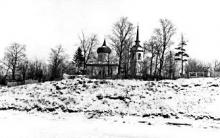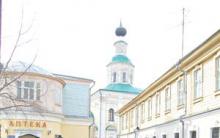Already the first acquaintance with Bazarov convinces: in his soul there are feelings that the hero hides from others. Turgenev’s self-confident and sharp commoner is very, very difficult to look at. An anxious and vulnerable heart beats in his chest. The extreme harshness of his attacks on poetry, on love, on philosophy makes one doubt the complete sincerity of the denial. There is a certain duality in Bazarov’s behavior, which will turn into a breakdown and strain in the second part of the novel. In Bazarov, Dostoevsky’s heroes are anticipated with their typical complexes: anger and bitterness as a form of manifestation of love, as a polemic with the good that latently lives in the soul of a denier. In the soul of the hero there is potentially present much of what he denies: the ability to love, and “romanticism,” and the national principle, and family feeling, and the ability to appreciate beauty and poetry. It is no coincidence that Dostoevsky highly appreciated Turgenev’s novel and the tragic figure of “the restless and yearning Bazarov (a sign of a great heart), despite all his nihilism.” But Bazarov’s antagonist, Pavel Petrovich, is not entirely sincere with himself. In reality, he is far from being the self-confident aristocrat that he pretends to be in front of Bazarov. Pavel Petrovich's emphatically aristocratic manners are caused by inner weakness, a secret consciousness of his inferiority, which Pavel Petrovich, of course, is afraid to admit even to himself. But we know his secret, his love is not for the mysterious Princess R., but for the sweet simpleton - Fenechka.
Thus, the mutual social hostility that flares up between rivals immeasurably aggravates the destructive aspects of Kirsanov’s conservatism and Bazarov’s nihilism.
At the same time, Turgenev shows that Bazarov’s denial has democratic origins and is fueled by the spirit of popular discontent. It is no coincidence that in a letter to Sluchevsky the author indicated that in the person of Bazarov he “dreamed of some strange person with Pugachev.” The character of Bazarov in the novel is clarified by the wide panorama of provincial life unfolded in the first chapters: strained relations between masters and servants; the “farm” of the Kirsanov brothers, popularly nicknamed “Vobylyi Khutor”; rollicking men in wide open sheepskin coats; a symbolic picture of centuries-old pre-post-postal desolation: “small forests, rivers with dug-out banks, tiny ponds with thin dams, villages with low huts under dark, half-scattered roofs, crooked threshing sheds with yawning gates near empty barns,” “churches, sometimes brick, with plaster falling off here and there, then wooden ones, with leaning crosses and devastated cemeteries...” It was as if an elemental force swept like a tornado over this god-forsaken land, sparing nothing, even churches and graves, leaving behind only dull grief, desolation and destruction.
The reader is presented with a world on the verge of social catastrophe; Against the backdrop of the restless sea of people's life, the figure of Evgeny Bazarov appears in the novel. This democratic, peasant background enlarges the character of the hero, gives him an epic monumentality, and connects his nihilism with popular discontent, with the social ill-being of all of Russia. In Bazarov's mentality, typical aspects of the Russian folk character are manifested: for example, a tendency to sharp critical self-evaluation. Bazarov also holds in his strong hands the “heroic club” - the natural science knowledge that he idolizes - a reliable weapon in the fight against idealistic philosophy, religion and the official ideology of the Russian autocracy based on them, a healthy antidote to both lordly daydreaming and peasant superstition. In his impatience, it seems to him that with the help of natural sciences all questions relating to complex problems of social life, art, and philosophy can be easily resolved.
But Turgenev, who knew the works of German naturalists, the idols of the revolutionary sixties, and was personally acquainted with Karl Vogt, draws attention not only to the strengths, but also to the weaknesses of the vulgar materialism of Vogt, Buchner and Moleschott. He feels that an uncritical attitude towards them can lead to far-reaching negative results. The gross mistake of vulgar materialists was a simplified idea of the nature of human consciousness, of the essence of mental processes, which were reduced to elementary, physiological ones. Let us note that art, from Bazarov’s point of view, is a painful perversion, nonsense, romanticism, rottenness, that the hero despises the Kirsanovs not only because they are “barchuks”, but also because they are “old men”, “retired people” ", "their song is finished." He approaches his parents with the same standards. All this is the result of a narrow anthropological view of human nature, a consequence of the biologization of social and spiritual phenomena, which led to the erasure of qualitative differences between physiology and social psychology. Following Vogt, Russian democrats argued that as a person ages, his brain depletes and his mental abilities become defective. Respect for the life experience and wisdom of the “fathers”, the sense of fatherhood that had been formed over centuries, was thus put into doubt.
Bazarov also considers the spiritual sophistication of a love feeling to be romantic nonsense: “No, brother, all this is licentiousness and emptiness!.. We, physiologists, know what kind of relationship this is. Study the anatomy of the eye: where does that mysterious look come from, as you say? This is all romanticism, nonsense, rot, art.” The story about Pavel Petrovich's love for Princess R. is not introduced into the novel as an inserted episode. He appears in the novel as a warning to the arrogant Bazarov.
A big flaw is also noticeable in Bazarov’s aphorism “nature is not a temple, but a workshop.” The truth of an active, master's attitude towards nature turns into blatant one-sidedness, when the laws operating at lower natural levels are absolutized and turned into a universal master key, with the help of which Bazarov can easily deal with all the mysteries of existence. There is no love, but there is only physiological attraction, there is no beauty in nature, but there is only the eternal cycle of chemical processes of a single substance. Denying the romantic attitude towards nature as a temple, Bazarov falls into slavery to the lower elemental forces of the natural “workshop”. He envies the ant, which, as an insect, has the right “not to recognize the feeling of compassion, not like our self-destructive brother.” In a bitter moment of life, Bazarov is inclined to consider even a feeling of compassion as a weakness, denied by the natural laws of nature.
But besides the truth of physiological laws, there is the truth of human, spiritualized nature. And if a person wants to be a “worker”, he must take into account the fact that nature at the highest levels is a “temple”, and not just a “workshop”. And Nikolai Petrovich’s penchant for daydreaming is not rotten or nonsense. Dreams are not simple fun, but a natural need of a person, one of the powerful manifestations of the creative power of his spirit. Isn’t the natural power of Nikolai Petrovich’s memory amazing when he resurrects the past in his hours of solitude?
Isn’t the amazingly beautiful picture of a summer evening that this hero admires worthy of admiration?
This is how the mighty forces of beauty and harmony, artistic imagination, love, and art stand in Bazarov’s path. Against Buchner’s “Stoff und Kraft” are Pushkin’s “Gypsies” with their warning aphorism: “And fatal passions are everywhere. And there is no protection from fate”; against a down-to-earth view of love - the romantic feelings of Pavel Petrovich; against the neglect of art, daydreaming, the beauty of nature - the thoughts and dreams of Nikolai Petrovich. Bazarov laughs at everything ethically. But “what you laugh at, you will serve,” - Bazarov is destined to drink the bitter cup of this life wisdom to the bottom.
From the thirteenth chapter, a turn is brewing in the novel: irreconcilable contradictions will be revealed with all their severity in the character of the hero. The conflict of the work from the external (Bazarov and Pavel Petrovich) is translated into the internal plane (“the fatal duel” in Bazarov’s soul). These changes in the plot of the novel are preceded by parody-satirical chapters, which depict vulgar provincial “aristocrats” and provincial “nihilists.” Comic decline is a constant companion of the tragic genre, starting with Shakespeare. Parody characters, highlighting with their baseness the significance of the characters of the two antagonists, grotesquely sharpen and bring to the limit those contradictions that are latently inherent in the central characters. From the comedic “bottom” the reader becomes more aware of both the tragic heights and the internal inconsistency of the phenomenon being parodied.
It is no coincidence that it was after meeting Sitnikov and Kukshina that traits of self-delusion rarely begin to appear in Bazarov himself. The culprit of these changes turns out to be Anna Sergeevna Odintsova. “Here you go! the women were scared! - thought Bazarov and, lounging in a chair no worse than Sitnikov, spoke with exaggerated cheekiness. Love for Odintsova is the beginning of tragic retribution for the arrogant Bazarov: it splits his soul into two halves. From now on, two people live and act in it. One of them is a convinced opponent of romantic feelings, a denier of the spiritual nature of love. Another is a passionately and spiritually loving person, faced with the true mystery of this high feeling: “He could easily cope with his blood, but something else took possession of him, which he never allowed, which he always mocked, which outraged all his pride " The “natural scientific” beliefs dear to his mind turn into a principle, which he, a denier of all kinds of principles, now serves, secretly feeling that this service is blind, that life turned out to be more complicated than what “physiologists” know about it.
M.E. Saltykov-Shchedrin wrote: “...What can be said about all of Turgenev’s works in general? Is it that after reading them it’s easy to breathe, easy to believe, and feels warm? What do you clearly feel, how the moral level rises in you, that you mentally bless and love the author?.. This, it is this impression that these transparent images, as if woven from air, leave behind, this beginning of love and light, surging in every line with a living spring. ..” These words are perfectly suited when we talk about the hero of the novel I.S. Turgenev “Fathers and Sons” to Evgenia Bazarov.
The difficult internal process of learning true love makes Bazarov feel nature in a new way.
Turgenev shows that love broke Bazarov, unsettled him, and in the last chapters of the novel he is no longer the same as he was at the beginning. Unhappy love leads Bazarov to a severe mental crisis, everything falls out of his hands, and his infection itself seems no accident: a person in a depressed mental state becomes careless. But Bazarov did not give up the fight against his pain and did not humiliate himself in front of Odintsova; he tried with all his might to overcome despair in himself and was angry at his pain.
The origins of the tragedy of Bazarov's love are in the character of Odintsova, a pampered lady, an aristocrat, unable to respond to the hero's feelings, timid and giving in to him. But Odintsova wants and cannot love Bazarov, not only because she is an aristocrat, but also because this democrat, having fallen in love, does not want love, is afraid of it and runs away from it. “An incomprehensible fear” gripped Odintsova at the moment of Bazarov’s love confession. And Bazarov “was choking; his whole body was apparently trembling. But it was not the trembling of youthful timidity, nor the sweet horror of the first confession that took possession of him; this passion beat within him, strong and heavy - a passion similar to anger and, perhaps, akin to it.” The element of a cruelly suppressed feeling broke out in the hero with a destructive force in relation to this feeling.
So, you can answer the question of how successfully the hero passed the “test of love” in different ways. On the one hand, the spiritual crisis that occurred in Bazarov’s consciousness speaks of the inferiority and instability of his ideological positions, of the hero’s lack of confidence in his own rightness. On the other hand, in love, Bazarov turned out to be much stronger and sincere than the other heroes of the novel. The power of the hero's love and romanticism was such that it destroyed him morally and physically and led to death.
Words
The originality of civil lyrics by N. A. Nekrasov
The peculiarity of Nekrasov as a lyrical poet is his citizenship, nationality, depth and diversity of feelings. His poems contain genuine lyricism, sadness, good-natured humor, sarcasm, despondency, joy of life (“Green Noise”), pity, and compassion for the plight of the poor, and calls to fight, and faith in the future triumph of truth. And all this can be summed up in two words: “noble heart.” Reflecting on the people and his fate, the poet often punished himself for the fact that, in his opinion, he had done too little, that he had been inconsistent in the struggle. This is how penitential poems appeared: “For this reason I deeply despise myself...”, “Muse”, “Celebration of life - the years of youth...”, “Shut up, Muse of revenge and sadness”, “My poems! Living witnesses... ", "I'll die soon! A pitiful inheritance..." and others.
The question of the lyrical hero of Nekrasov’s poetry is complex and controversial. Some literary scholars believe that Nekrasov had a single lyrical hero-commoner. Others (for example, N.N. Skatov) prove that there is no such hero, but that there is a “multiplicity of voices and consciousnesses.” Be that as it may, in all of Nekrasov’s poems his personality is present, his voice is heard, which we will not confuse with any other. His catchphrase: “You may not be a poet, but you must be a citizen” is known to everyone. It is a modified and clarified formulation of Ryleev: “I am not a poet, but a citizen.”
Nekrasov's poetry is the poetry of confession, sermon and repentance. Moreover, these three feelings, three moods are inextricably fused in him, and often it is impossible to say which feeling, which mood prevails. For example, in “The Poet and the Citizen” there is confession, repentance, and sermon. But there are works that predominantly express one or another feeling and mood. Obviously confessional poems are poems about love: “You are always incomparably good,” “I don’t like your irony,” “Oh letters from a woman dear to us!..”.
In all these works, either in the foreground or as a background, there is an image of the Motherland, enslaved, but filled with secret powerful forces. The form of dialogue helps Nekrasov clarify the meaning of poetry in the poem “The Poet and the Citizen.” The author’s thoughts are put not only into the poet’s mouth, but mainly into the citizen’s statements. The poet's words await the Motherland, the people, and the coming storm. At this time of the Fatherland, a worthy son “is obliged to be a citizen,” for “He, like his own, bears on his body all the ulcers of his homeland...”.
Words
My favorite poet
Anna Akhmatova... Quite recently I read her poems for the first time and delved deeply into them. From the first lines, the bewitching music of her lyrics captivated me. I touched the spiritual world that her poems reflected. And I realized that Anna Akhmatova was an extraordinary person, with a big soul. She was extremely true to herself, although how unfairly she often felt bad, hurt, and bitter. She lived a difficult life, full of hardships, trials and bitter disappointments.
Anna Akhmatova loved life. She loved her homeland - Russia, and was ready to give everything so that “the cloud over dark Russia would become a cloud in the glory of the rays.”
Everything was significant about her - both her appearance and her spiritual world. She devoted most of her work to the pure, beautiful and at the same time painful feeling of love. And a lot has been written about this with inexpressibly deep sadness, melancholy, and fatigue;
Heart to heart is not chained,
If you want, leave.
Much happiness is in store
For those who are free on the way...
These verses cannot be confused with others. They are unlike anyone else; Akhmatova’s unique poetry resonates deeply in the heart. And at the same time, Akhmatova’s poetry is sunny, simple and free. She lived with great earthly love and sang about it, and this was the meaning of her life, her natural state. All her life, Anna Andreevna shared the treasures of her soul with the world, which did not always understand her and often simply rejected her. She's been through a lot. Often she “fell” down from the peak of poetry and rose again unconquered thanks to the desire to live and love. She didn't chase fame.
A poet must be sincere, and perhaps it is precisely because of its truthfulness that Akhmatova’s poetry attracts me:
From under what ruins am I speaking?
From under what avalanche I am screaming,
Like burning in quicklime
Under the arches of a fetid basement.
I read Akhmatova as a revelation of the human soul, ennobling by its example the lives of those people who bow their heads before her song, before the majestic music of truth, love, trust. I am grateful to Anna Akhmatova for giving me the miracle of meeting a Man and a Poet. For her poems, reading which you begin to think about things that were simply not noticed before. I say thank you to her for leaving an indelible mark on my soul.
In “Fathers and Sons,” Turgenev applied the method of revealing the character of the main character, already worked out in previous stories (“Faust” 1856, “Asya” 1857) and novels. First, the author depicts the ideological beliefs and complex spiritual and mental life of the hero, for which he includes conversations or disputes between ideological opponents in the work, then he creates a love situation, and the hero undergoes a “test of love,” which N.G. Chernyshevsky called “a Russian man on a rendez- vous." That is, Turgenev places the hero, who has already demonstrated the significance of his character and ideas, in life circumstances that require character and the application of ideas in practice - to overcome specific life obstacles. At the same time, in none of Turgenev’s works are the circumstances of the “test of love” repeated. Thus, in the novel of the same name (1855), Dmitry Rudin fell in love with a wonderful girl, Natalya Lasunskaya. She is the first to confess her love, and then Rudin, who is in love himself, retreats. He is not sure that he can arrange a decent life for Natalya, he is afraid to take responsibility for her fate, so he advises her to submit to the will of her aristocratic mother, who will never agree to the marriage of her daughter and the poor philosopher Rudin. “Submit!
So this is how you apply in practice your interpretations about freedom, about sacrifices...” (IX), Natalya sums up Rudin’s lofty calls. The scene of the last explanation at the abandoned pond proves the failure in life of Rudin, an excellent speaker and an insecure person, helpless in real circumstances. Fyodor Lavretsky in the novel “The Noble Nest” (1858) is depicted as a mature man who has seen a lot (Russia and France, capitals and provinces), changed his mind a lot (ideas of Westerners and Slavophiles, relations between the nobility and the people), experienced a lot (love for his wife and her betrayal ). Lavretsky meets Lisa Kalitina, who is distinguished by her extraordinary spiritual and moral sensitivity. At first he falls hopelessly in love with Lisa, and after the news of his wife’s death he begins to dream of personal happiness.
But the sudden arrival of his wife (the news of her death turned out to be false) shatters all his hopes. The hero does not try to do anything in the current situation, he immediately resigns himself to his tragic fate, as evidenced by the last farewell meeting of the main characters (ХLII). Lisa goes to a monastery, and Lavretsky remains a lonely, restless person. The main character of the novel “On the Eve” (1859) is a poor student at Moscow University, a Bulgarian by nationality, Dmitry Insarov, a man with a strong character, purposeful, inspired by the great idea of the fight for the freedom of his homeland. This hero opposes “rodents, Hamletics, Samoyeds” - Russian noble intellectuals, heroes of Turgenev’s first novels. A young noblewoman, Elena Stakhova, falls in love with Insarov, captivated by the heroic personality of the Bulgarian, his passionate love and at the same time proud modesty, self-confidence (which was not the case in Lavretsky), and lack of posturing (which Rudin was guilty of). In the scene of the declaration of love, Insarov declares that he cannot give up the main goal of his life - the fight for the liberation of Bulgaria from the Turkish yoke, but Elena, approving of this high and noble goal, is ready to share with him all the difficulties of the dangerous heroic struggle (XVIII). This is how Insarov and Elena find happiness without opposing their love to another important goal - the fight for the freedom of Bulgaria.
Bazarov idolizes natural science knowledge. In his impatience, it seems to him that with the help of natural sciences all questions relating to complex problems of social life, art, and philosophy can be easily resolved. But Turgenev, who knew the works of German naturalists, the idols of the revolutionary sixties, and was personally acquainted with Karl Vogt, draws attention not only to the strengths, but also to the weaknesses of the vulgar materialism of Vogt, Wüchner and Moleschott. Thus, the gross mistake of vulgar materialists was a simplified idea of the nature of human consciousness, of the essence of mental processes, which were reduced to elementary, physiological ones.
Let us note that, from Bazarov’s point of view, art is a painful perversion, nonsense. Bazarov also considers the spiritual sophistication of a love feeling to be romantic nonsense: “No, brother, all this is debauchery and emptiness... This is all romanticism, nonsense, rottenness, artistry,” he says to Arkady. The story about Pavel Petrovich's love for Princess R. is not introduced into the novel as an inserted episode. He appears in the novel as a warning to the arrogant Bazarov. Bazarov easily deals with all the mysteries of existence.
There is no love, but only physiological attraction; there is no beauty in nature, but only the eternal cycle of chemical processes. He envies the ant, which, as an insect, has the right “not to recognize the feeling of compassion, not like our self-destructive brother.” But besides the truth of physiological laws, there is the truth of human, spiritualized nature. And a person must reckon with the fact that nature at the highest levels is a “temple”, and not just a “workshop”. And Nikolai Petrovich’s penchant for daydreaming is not rotten or nonsense. Dreams are not simple fun, but a natural need of a person, one of the manifestations of the creative power of his Spirit.
From the thirteenth chapter, a turn is brewing in the novel: irreconcilable contradictions will be revealed with all their severity in the character of the main character. The conflict of the work from the external (Bazarov and Pavel Petrovich) is translated into the internal plane (“fatal duel”) in Bazarov’s soul.
The culprit of these changes turns out to be Anna Sergeevna Odintsova. Love for Odintsova is the beginning of tragic retribution for the arrogant Bazarov: it splits his soul into two halves.
From now on, two people live and act in it. One of them is a convinced opponent of romantic feelings, a denier of the spiritual nature of love. The other is a passionately and spiritually loving person, faced with the true mystery of this high feeling. “Natural science” beliefs dear to his mind turn into a principle, which he, a denier of all kinds of principles, now serves, secretly feeling that this service is blind, that life turned out to be more complicated than that what “physiologists” know about it.
Usually, the origins of the tragedy of Bazarov’s love are sought in the character of Odintsova, a pampered lady, an aristocrat; unable to respond to Bazarov’s feelings, timid and giving in to him. But Odintsova wants and cannot fall in love with Bazarov, not only because she is an aristocrat, but also because this democrat, having fallen in love, does not want love and runs away from it. It is interesting that in the matter of love, the paths of Bazarov and Pavel Petrovich once intersect.
This is due to their attitude towards Fenechka. Pavel Petrovich is attracted to Fenichka's democratic spontaneity: he is suffocating in the emptiness of his aristocratic intellectualism. But his love for Fenechka is too transcendental and ethereal: “So it’s pouring cold on you,” the heroine complains to Dunyasha about his “passionate” glances. Bazarov is looking for in Fenechka vital confirmation of his view of love as a simple and clear sensual attraction. But this “simplicity” turns out to be worse than theft: it deeply offends Fenechka, and a moral reproach, sincere and genuine, is heard from her lips. The lessons of love led to grave consequences in the fate of Bazarov. They led to a crisis in his one-sided, vulgar materialistic life.
Two abysses opened before the hero: one was the mystery of his own soul, which turned out to be deeper and more bottomless than he expected; the other is the mystery of the world that surrounds him. The tragedy of Bazarov's situation is further aggravated under the roof of his parents' home. The gloomy, withdrawn, cold hero is opposed by the great force of selfless parental love rushing towards him.
Bazarov wants to break out of this world of love and harmony, strive to escape from himself, but he fails. Turgenev once again takes Bazarov through the circle that he had already walked in the first part of the novel: Maryino, Nikolskoye, his parents’ house. But now we don’t recognize the old Bazarov: his disputes are fading, his unhappy love is burning out. The second circle of the hero’s life’s wanderings is accompanied by the last breaks; with the Kirsanov family, with Fenechka, with Arkady and Katya, with Odintsova and, finally, the fatal break with the man for Bazarov. Bazarov's emphasized disregard for the depth and seriousness of peasant life costs him dearly. Feigned indifference and condescending irony are replaced by buffoonery: “Well, tell me your views on life, brother: after all, in you, they say, all the strength and future of Russia, a new era in history will begin from you...” - he addresses the peasant.
The hero does not even suspect that in the eyes of the man he is not only a gentleman, but also something like a “clown of a fool.” The inevitable blow of fate can be read in the final episode of the novel: there is something symbolic in the fact that the brave “anatomist” and “physiologist” of Russian life kills himself during the autopsy of a peasant’s corpse. Medicine turns out to be unable to help Bazarov in a tragic moment, leaving Bazarov alone with himself.
And then the forces that were once denied by him, but kept at the bottom of his soul, come to the hero’s aid. The dying Bazarov is simple and humane: there is no longer any need to hide his “romanticism.”
Bazarov dies surprisingly. He thinks not about himself, but about his parents, preparing them for a terrible end. Almost like Pushkin, the hero says goodbye to his beloved, and he says in the language of a poet: “Blow on the dying lamp and let it go out.” Love for a woman, filial love for his father and mother merge in the consciousness of the dying Bazarov with love for his homeland, for mysterious Russia, which remains by no means a completely solved mystery for Bazarov. Turgenev foresaw much in Russian nihilism.
He showed what consequences the force of anger, contempt and destruction can lead to for a revolutionary if it takes nihilistic forms.











Chicken skewers Chicken skewers with bacon
Mushroom glade salad with honey mushrooms recipe with photos How to prepare mushroom glade salad with honey mushrooms
Very tasty lecho: recipe with carrots
Minced meat for dumplings - preparing hearty meals at home
Honey cake with sour cream